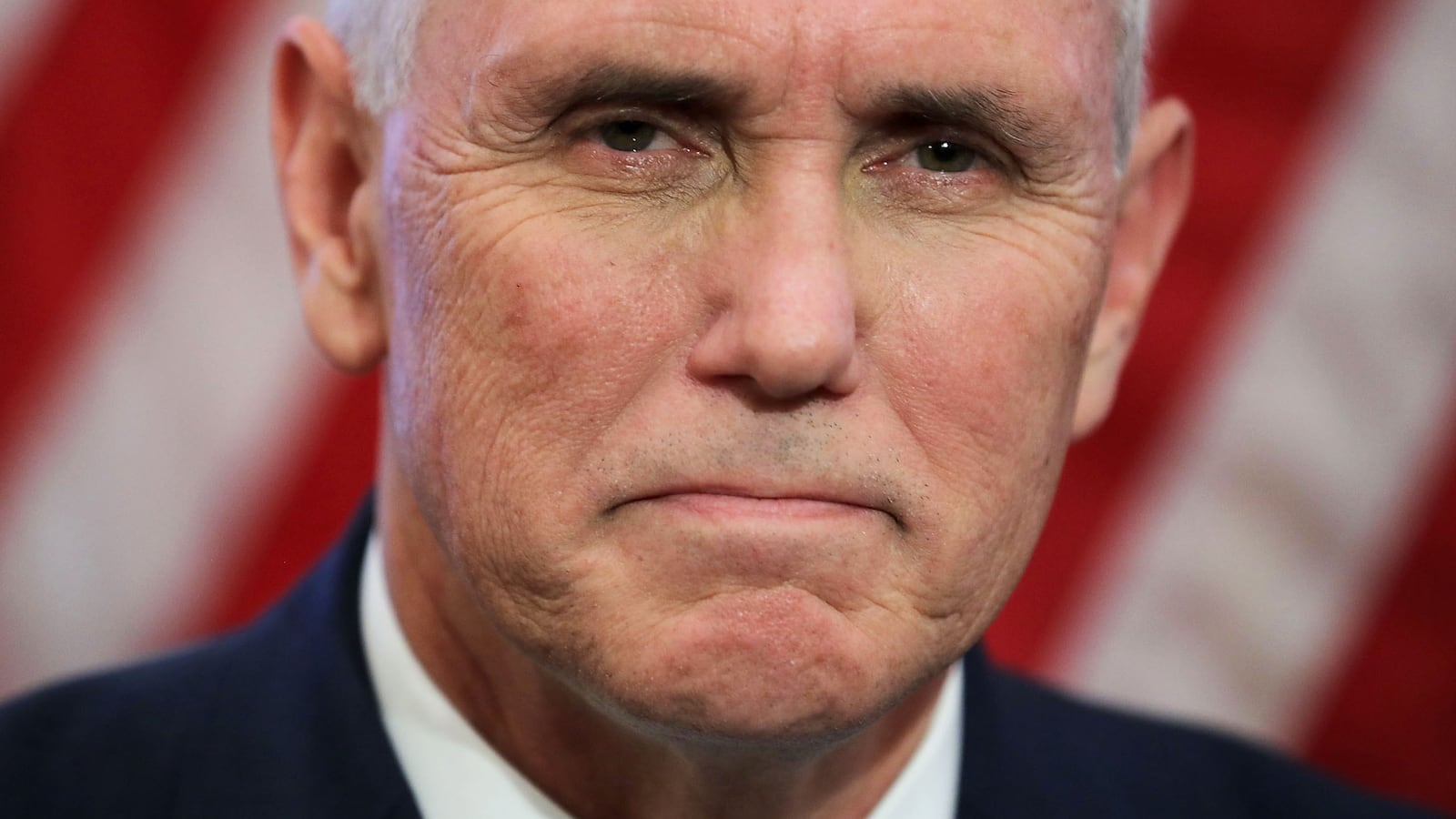President Donald Trump wasn’t the only high-ranking White House official to express support for ending political showdowns over the debt ceiling during a recent meeting with congressional leadership.
Vice President Mike Pence also embraced the idea, numerous sources briefed on the Wednesday meeting tell The Daily Beast.
The meeting, which included Senate Majority Leader Mitch McConnell (R-KY), Senate Minority Leader Chuck Schumer (D-NY), House Speaker Paul Ryan (R-WI) and House Minority Leader Nancy Pelosi (D-CA), ultimately resulted in a three-month extension of the debt ceiling, coupled with a similarly-long funding of the government and billions in Hurricane Harvey relief. But the political ramifications of the get together could be felt in future legislative fights.
At one point, according to two sources familiar with the exchange, Trump asked those gathered why it was that votes to raise the debt ceiling had to happen in the first place. Those votes are painful for leadership, who never want to support a debt ceiling hike but recognize that not doing so would risk economic calamity. After Trump asked his question, a source familiar with the discussion said, a conversation began about how the debt ceiling could be eliminated altogether.
The Washington Post reported that Schumer and Trump reached a “gentlemen’s agreement” to work together to find a resolution. Left unreported, those sources say, was that Pence also signaled his support of getting rid of the debt ceiling.
An aide to the vice president didn’t dispute the characterization, but did clarify it. Pence, the aide said, discussed possibly reinstating the so-called “Gephardt Rule,” named after the former House Majority Leader Richard Gephardt (D-MO). Under that rule the debt ceiling is automatically increased once the House approves a budget—eliminating the need to force that difficult vote.
The Gephardt Rule was done away with in 1995 when Republicans decided to use the debt ceiling vote as political leverage. And Pence was one of those Republicans who took advantage of those votes. He previously called for domestic spending cuts in exchange for debt limit hikes.
“The opportunity to pile good ideas on top of legislation that has to pass in some way is profound,” Pence said in 2011. “I think you’ll see House conservatives and Republican leadership use every means at their disposal to make sure that we turn our nation back, that, as we debate a debt ceiling, that we’re turning our nation back toward a lodestar of a balanced budget.”
Pence’s openness to effectively neutralizing the debt ceiling issue underscores a major change of thinking on the matter. It also suggests that the deal Trump cut with Schumer was not necessarily a byproduct of shared metropolitan and Democratic roots between the two men—as numerous conservative commentators have warned on Thursday—but, rather, how being in the executive branch sobers one up to the severity of the debate.
Indeed, when faced with the prospects of a debt default, presidents simply want to take the proverbial gun away from the economy’s head. Pence isn’t the first one to change his tune once he left the legislative branch for the executive. Barack Obama spoke out forcefully against raising the debt ceiling in 2006, when he was a senator and George W. Bush was president. When he made it to the Oval Office, he changed his tune, saying that he regretted his prior vote, pledging to never negotiate over the debt ceiling again.






